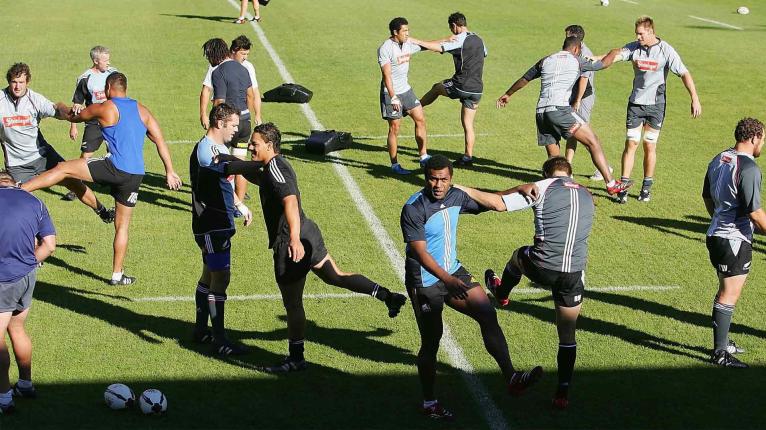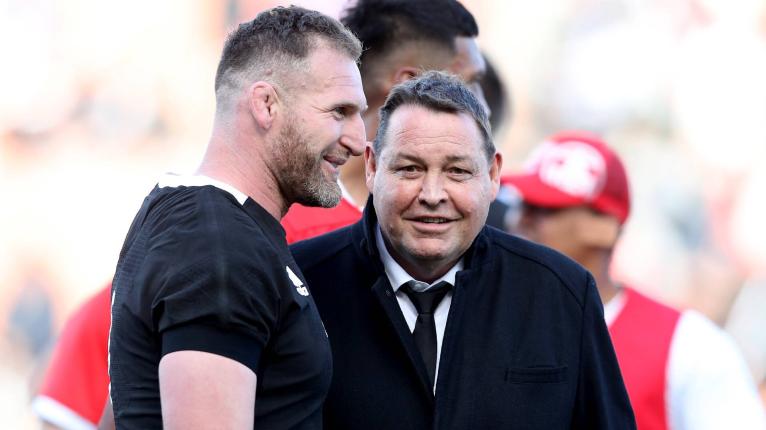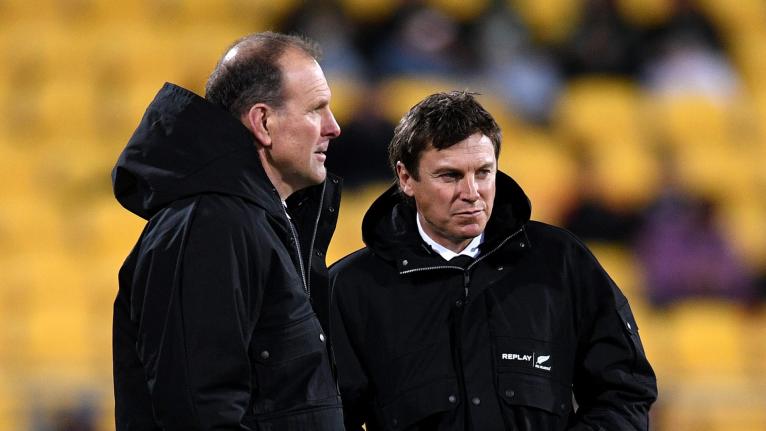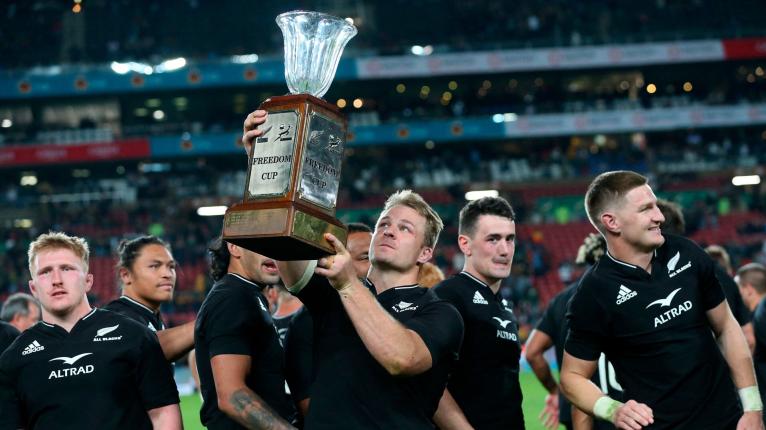From the early 1990s until 2011, New Zealand Rugby became obsessed with winning the World Cup. It wasn’t healthy and probably, looking back on that period, their desire to win a title, was in fact the greatest barrier to the All Blacks achieving that goal.
Those 20-odd years were painful. They were maybe even a bit daft, the way the administration of the professional game was built exclusively around one thing, which is why we saw some incredible and ill-advised decisions being made.
In 2002, head coach of the All Blacks, John Mitchell, was allowed to keep most of his likely World Cup squad at home, rather than take them on an end-of-year tour to England, France and Wales.
In 2007, Graham Henry as head coach was given permission to take 22 players out of the first seven rounds of Super Rugby to give them an extended pre-season to prepare for the World Cup. It may have been a good idea in theory, but in practice, it left the players undercooked and out of sorts by the time they reached the tournament in France.
These sorts of decisions, as well as continually allowing All Blacks coaches in World Cup years to treat the Rugby Championship as an irrelevancy, built in the public mind this idea that the only thing that mattered was lifting the Webb Ellis trophy.

But the most significant and consistent act which built the importance of World Cups in the public arena, was the way All Blacks coaches were contracted.
NZR fell into this trap of making its coaching appointments to fit in with World Cup cycles. It began when John Hart resigned after the bronze play-off match in 1999. After that, NZR locked into offering coaches two-year contracts that would begin in year one of a cycle and if all went well, they would extend for another two years through to the World Cup.
If, and as it turned out when, the sitting coach didn’t win the World Cup, they would run a post-tournament process to find the next coach and repeat the cycle.
It meant that a coach could only validate their appointment by winning the World Cup, which didn’t happen until 2011. And that tournament was the system at its most intense.
The incumbent coaching team of Graham Henry, Wayne Smith and Steve Hansen had been appointed through to the 2007 World Cup. When the All Blacks bombed out in the quarter-final, the expectation was overwhelming that they would not be re-appointed.
But against the odds, they were, with NZR’s board saying they felt the trio could learn from what happened in France and use it to win the 2011 tournament.
Even though they won 13 from 15 tests in 2008 and 13 of 14 in 2010, Smith felt their eight-year tenure ended up being judged on what happened on one six-week tournament in 2011.
It was a brave call and ultimately the right call – but it meant that the pressure intensified on the coaching group. Even though they won 13 from 15 tests in 2008 and 13 of 14 in 2010, Smith felt their eight-year tenure ended up being judged on what happened on one six-week tournament in 2011.
And he was right, it did – and it was only after the All Blacks finally won a tournament for the first time since 1987, that the system changed.
Hansen was appointed as head coach in 2012 and given the customary two years. When the All Blacks won 12 and drew one of their 14 tests that year, his contract was extended through to 2015. But the big change came at the end of 2014. NZR broke rank and having seen the All Blacks go through 2013 undefeated and suffer just one defeat in 2014, they moved early to extend Hansen’s contract through to 2017.
It was a big, big shift because it meant NZR was saying that Hansen wouldn’t be solely judged by what happened at the 2015 tournament. NZR chief executive Steve Tew, said at the time: “Steve is the first All Blacks coach to be given a contract extension beyond a Rugby World Cup, which demonstrates just how much faith the board and our wider organisation, together with the All Blacks players and management, have in him.
“He has huge experience and under his guidance, the All Blacks have reached remarkable heights. To have him re-sign as head coach through to 2017 gives the All Blacks the continuity they will need as they make the transition into 2016 and beyond, following next year’s Rugby World Cup.”

Hansen broke the cycle, but it only proved temporary, because NZR has turned the clock back by deciding to stick with incumbent head coach Ian Foster through to the 2023 World Cup.
It was an unexpected decision made earlier this week, given the weight of evidence against retaining Foster. The All Blacks had lost five of six tests from the end of 2021 to August 2022.
The results were clearly disappointing, but they were only part of what was an overwhelmingly negative picture. The All Blacks hadn’t looked like winning any of those five tests. They were behind early in each and never had sustained periods of pressure where it looked like they might storm back.
In particular, their performances in the second and third tests of the July series against Ireland and the first Rugby Championship match in Mbombela were as insipid and meek as anything the All Blacks had produced in the professional era.
There was no sign of improvement or advancement, no evidence the team were progressing or building towards a defined vision. Adding against Foster was the fact that the All Blacks had lost to Argentina for the first time in history in 2020 – a year in which the All Blacks won three, lost two and drew one of their six tests.
The expectation was strong that Foster would make changes to his coaching team at the end of 2021 but he didn’t. He made a pitch to the NZR board to allow him to keep his assistants on the basis he would upskill and mentor them.
In 2021 they won 12 of their 15 tests but their victories came against Tonga, Fiji, Argentina, Australia, USA and an under-strength Welsh team. They had to play four big tests – two against South Africa and one each against Ireland and France and they only won one.
Most damning of all, however, was the assistant coaches John Plumtree and Greg Feek reviewed poorly with the players in 2020 and 2021 and attack coach Brad Mooar didn’t receive glowing feedback either.
The expectation was strong that Foster would make changes to his coaching team at the end of 2021 but he didn’t. He made a pitch to the NZR board to allow him to keep his assistants on the basis he would upskill and mentor them – fast-track their development and also bring in former Ireland supremo Joe Schmidt as a selector and analyst.
On top of that, he said he would also bring in Andrew Strawbridge as a part-time skills coach and while he and the board thought this all made sense, the wider rugby populace shook their heads.
This didn’t make sense at all. It seemed to be denying the facts and failing to deal with the core issue of competency. Instead of making changes, he was layering his coaching team to hide deficiencies in others members of the group.

The unavoidable truth is that the All Blacks can’t be a finishing school for aspiring coaches and when Ireland came to New Zealand in July 2022 and won the series 2-1, it was actually not that big a surprise.
The All Backs had played with a lack of clarity and cohesion. Those in decision-making roles such as Beauden Barrett and Aaron Smith looked confused and uncertain and the forwards didn’t front at set-piece or the breakdown in the two defeats.
They also conceded two tries to rolling mauls and they looked like a team paying for Foster’s hubris in believing he could fix coaches who simply weren’t up to it.
When it came time to debrief the series the senior players delivered an unambiguous message that they couldn’t be ignored a third time. They made it clear changes had to be made and out went Plumtree and Mooar and in came Crusaders forwards coach Jason Ryan.
Still, despite making those changes, the feeling ahead of the All Blacks test at Ellis Park against the Boks on August 14 was that even should they somehow win, it wouldn’t be a strong enough case to keep Foster.
But here we are now, with Foster still in charge and having finally been endorsed by his employer to be at the helm of the team through to the World Cup.
On the surface, it looks like it’s the single most incredible risk any board of directors has taken on an international coach in the professional era.
“Ian has provided management with his own recommendations, and these have in turn been recommended to the board who have unanimously agreed they have absolute confidence that Ian and this coaching group are the right people to lead the All Blacks through to the World Cup,” NZR chair Stewart Mitchell announced days after New Zealand had beaten South Africa 35-23 at Ellis Park.
There are some who believe that decision was made on the basis of the last 12 minutes at Ellis Park where, somehow, the All Blacks found the resilience to fight back from 23-21 down and a man in the bin, to score two late tries to win.
On the surface, it looks like it’s the single most incredible risk any board of directors has taken on an international coach in the professional era.
It could be said they have gambled their 2023 World Cup dream on a 12-minute blast of rugby which may have shown the true character of this team, or may also have been an aberration and the result of their desperation.

But more fairly, what they have gambled on, is that the introduction of Joe Schmidt as attack coach is going to transform the team. And specifically, they are gambling that Schmidt’s intimate knowledge of European rugby will be what enables the All Blacks to win the World Cup.
The board, after all, had to effectively decide between keeping Foster at the helm or axing him for Scott Robertson. To answer the question, they had to specifically frame it as which of the two options would give the All Blacks the better chance of winning the World Cup.
The presence of Schmidt and the likelihood of the All Blacks having to play Ireland, France and England swung the decision in favour of Foster.
But now of course, to justify it, the All Blacks have to win the title next year. That’s it. That’s the simple truth – that we are back once again to judging a four-year tenure on a seven-week tournament.


NZRU cannot afford to wait until the completion of the next world cup before starting their recruitment process for head coach. That was their critical flaw (or maybe it was by design to deliberately lessen the number of candidates) last time forcing quality coaches to accept an offer already on the table before the tournament, or throw their hat in the ring afterwards and face unemployment if they miss out.
Forget Scott Robertson's contract with NZRU to 2024. He has an exit clause to pursue other opportunities and it's naive or negligent for NZRU to think feelers haven't already been extended by other countries following Foster's extension.
Unconfirmed report is that Robertson wanted the security of a five year contract if he took over from Foster after Ellis Park test. Smart and sensible.
In 2019 he presented his vision of the All Blacks gameplan to the interview panel, plus the player profiles he believed were necessary to win it. Inheriting a team selection, 12 months out from the world cup would unfairly hitch him to a result not entirely of his own making if they failed to make the final or win the tournament.
I'm surprised that Scott McLeod has survived as defence coach. Greg Feek worked for Schmidt as the Irish scrum coach and the scrum has improved with the young props.
Schmidt will definitely challenge Foster's ideas around selection. Foster has been conservative and defaults to players selected under Hansen. There is clearly talent in NZ rugby, much of it untapped in terms of reaching their performance ceilings and some of the experienced players may no longer produce the sustained performances to keep them out.
I agree, they should approach Scott Robertson now and tell him that the job is his after the next World Cup regardless of the result. It is in the best interest of the team and the game in NZ that he is given the job on so many levels.
I am going to support the team a hundred percent and I think with Schmidt and Ryan being Fozzies assistants that we have a real chance of improving and giving it a good nudge. I think both of those guys have no history with the incumbents and should really challenge Fozzie with selection which is what is needed.
Scott McLeod was part of Razor’s coaching group in his bid for AB coach.
Our defence strategy has changed which was a big shift in how we defend normally.
I would like Razor to be coach, but also I moving on from that and I like the look of the new trio. After all Fozzie knows a fair bit about world cups and the other two fill the key roles brilliantly. I am getting behind the coaches now. It is what it is and I love the team more than wanting to complain all the time. It's not going to change so I plan to just enjoy supporting my team through to 2023 now, and a special team it is. If we don't win RWC hopefully Razor will get a go in 2023, if he wants it enough to stay around.
Well said. We finally have a functioning loose trio and a specialist first five too. Just the centres now, and the return of Cron after the women's world cup.
My hope now Gregor is that should this team fail to win the 2023 Rugby World Cup in France that the whole NZ Rugby BOARD , team management and players are REVIEWED in the same haphazard way it it has been done in the last 4 years and Scott Robertson is finally given the chance to fulfill his dream that most analysts and majority of loyal All Black fans would have 4 or at least 2 years ago remembering that some of his team were poached by Foster to save his own neck!
I just wonder if the so called journalists are going to get behind the AB’s.
Other options, there might not been any.
The coaching structure now looks solid. A lot of experience.
We are settled now.
Only 13 games to go.
We need to discuss other problems that in our NZ game that have led us here. And how we fix them.
More pressure needs to be applied to the Super Teams in getting our guys ready for test match rugby.
It used to be said in the past that Super rugby players would become better players in the All Blacks environment, but in recent years we've seen players perform better for their Super teams.
Super rugby Pasifika as a fledgling competition isn't as intense or competitive as previous iterations of Super rugby that featured SA teams and even the Jaguares.
All NZ teams play similarly which naturally breeds a sense of complacency and insularity when the strength of the competition is so lopsided towards NZ teams. Lack of exposure against teams with big bodies who are also athletic and unashamedly play a different style that suits them, provides poorer preparation for test rugby.
The northern hemisphere club competitions are the strongest in the world now, and SA teams are definitely the greater beneficiaries since the demise of Super rugby.
I don't know how we can increase exposure and contact with SA rugby at Super rugby level, but they should definitely explore it at age grade level or even NPC/Currie Cup level.
Our players are not going to get significantly better playing just ourselves and Australian teams.
To be fair, it wasn’t just a 12 minute burst at the end of the Ellis Park test. The All Blacks started strongly as well, which is something they hadn’t done for a long while.
My feeling about Foster as All Blacks Head Coach right now is almost identical to my feeling about Sam Cane as his Captain. He has good support all around him now, with a team that looks more co-ordinated and competent, but you can’t help feeling that there are better options in his position that are being overlooked.